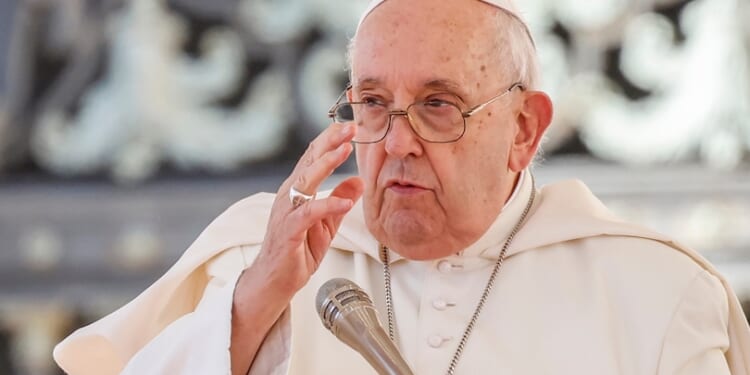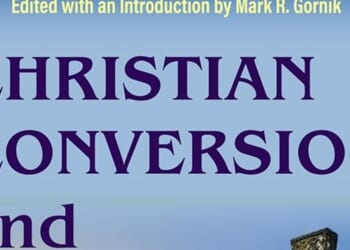VATICAN CITY (LifeSiteNews) — During the presentation of the doctrinal note on marriage, Una Caro, in the Holy See Press Office on November 25, Father Armando Matteo, secretary of the Dicastery for the Doctrine of the Faith, stated that the two documents published this month – along with two soon to be released – are to be considered part of Pope Francis’ legacy.
“Together with the note on Marian titles and the note on monogamy,” the secretary said, “the dicastery is currently carrying out another study on the theme of the transmission of the faith, and is then completing the final report of the well-known Study Group No. 5 on the participation of women in the life and leadership of the Church, which will be delivered directly to the Secretariat of the Synod, which in turn will hand it over to Pope Leo.”
READ: Vatican rejects Marian titles ‘Co-Redemptrix’ and ‘Mediatrix’ in new doctrinal note
Matteo then specified that “in this way, with these four documents, the mandate Pope Francis had given us two years ago comes to an end. The dicastery now awaits an official and complete meeting with Pope Leo in January, so as to receive instructions for the next documents.”
The Vatican official acknowledged that the doctrinal note on Marian titles had been conceived under the reign of Pope Francis and desired by him, although the matter had already been unofficially known for some time to those frequenting Vatican circles.
The final report on the role of women in the life and governance of the Church will attempt to bring closure to the study carried out by the so-called Study Group 5 from the mutli-year Synod on Synodality. This is one of the most debated and controversial points in the synodal work of recent years.
Throughout Francis’ pontificate, numerous signs emerged showing the late pope’s intention to study and theologically justify the possibility of introducing women to Holy Orders.
From 2016 onward, Francis introduced various gestures and initiatives that opened debate on the role of women in the Church: from modifying the Holy Thursday rite to include washing the feet of women, to establishing a study commission on female deacons, to the passages in Amoris laetitia criticizing patriarchal cultures and promoting the dignity of women.
READ: Vatican rejects polygamy, ‘polyamory’ in new doctrinal note defending marriage
Also in 2016, the Vatican daily L’Osservatore Romano published articles supporting the preaching of women, while in 2017 the Jesuit journal Civiltà Cattolica relaunched the question of female ordination. Later, in 2019, Bishop Erwin Kräutler – an advocate of women priests –authored the Instrumentum laboris for the Amazon Synod, and in the same year a private meeting of cardinals and bishops explicitly discussed female ordination. Finally, the Instrumentum laboris for the October 2024 synod took up the theme once more, inviting the Church to recognize official ministries for women, especially in the Amazon context.
During the first assembly of the Synod of Bishops on Synodality in October 2024, beside the official study groups, the existence of a confidential working group – identified precisely as Group 5 – had been reported. This group, whose members were not disclosed, had been tasked with addressing particularly sensitive matters.
Officially, in March 2024, the Vatican presented Group 5 as a study group on “theological and canonical questions concerning specific ministerial forms,” such as the role of women in the Church and “the possible admission of women to the diaconate.”
The secret nature of this study group sparked indignation among several synodal delegates, who demanded clarity regarding the transparency of the entire process. The widespread perception was that of a strategic laboratory where issues with potentially structural impact on the Church were being discussed.
The report soon to be delivered “directly into the hands of the Secretariat of the Synod,” and subsequently into the hands of Pope Leo, will contain the final theses of this secret study group.

















